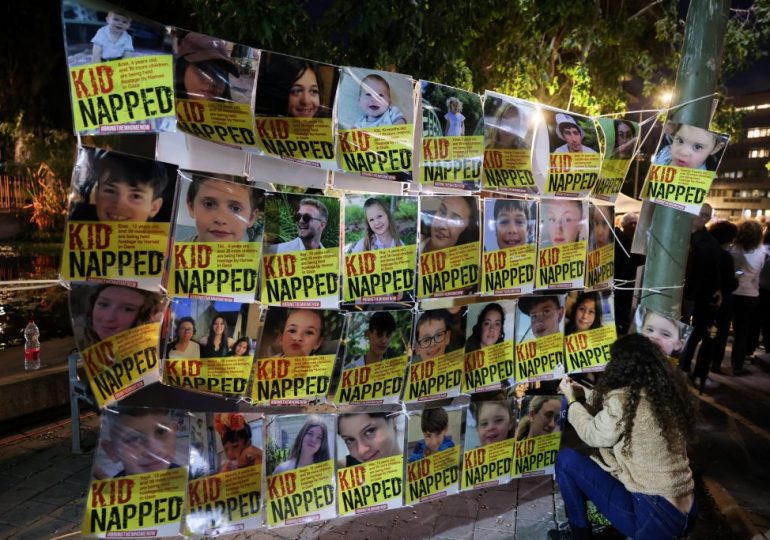Hamas chief Ismail Haniyeh said his group is close to reaching a “truce agreement” in talks with Qatar and Israel, rare public comments that suggest discussions over freeing some hostages held by the militant group are progressing.
[time-brightcove not-tgx=”true”]
Read More: The Families of Israelis Held Hostage by Hamas Speak Out
“The movement delivered its response to the brothers in Qatar and the mediators, and we are close to reaching a truce agreement,” Haniyeh said in a statement on Telegram.
His comments come after U.S. President Joe Biden said Monday that Israel and Hamas are closing in on a deal to free a group of hostages taken when the group stormed Israel on Oct. 7, killing about 1,200 people. “I believe so,” Biden said when asked if a deal was near. He added that he wasn’t prepared to offer details.
Yahya Sinwar, Hamas’s leader in the Gaza Strip, has agreed in principle for more than 50 women and children to be released, Axios reported earlier. In return, Israel would pause its military attacks for a specified time each day and release some Palestinians in Israeli jails.
Qatar, which hosts some of Hamas’s political leaders, is helping broker the talks between the group, a designated terrorist organization by the U.S. and European Union, and Israel.
U.S. Deputy National Security Advisor Jon Finer said in an interview Sunday with NBC that the parties were “closer than we have been in quite some time, maybe closer than we have been since the beginning of this process, to getting this deal done.”
Read More: Peace is Possible for Israel and Gaza—If Their Leaders Want It
Even with those discussions, the fighting rages on.
Israeli forces have been engaged in heavy fighting with Hamas in the northern Gaza Strip. The Israeli military and Shin Bet, the country’s domestic security service, said they killed three Hamas commanders, while fighter jets bombed more buildings and sites used by Hamas.
The main thrust of Israel’s ground offensive is eastwards into Gaza City, which the military describes as Hamas’s “center of gravity.” Israeli forces have taken control of many parts of the city’s Shifa hospital and over the weekend showed videos they say prove Hamas exploited the facility, building a command center and tunnels underneath it.
While Israel has concentrated its airstrikes and ground assault on northern Gaza, it is now turning its attention to the south, signaling the possibility of sending troops there.
In recent days, the Israel Defense Forces has dropped leaflets on Khan Younis, telling residents to leave the southern city. Prime Minister Benjamin Netanyahu, on Saturday evening, said “all Hamas leaders are dead men walking” and wouldn’t rule out ground attacks in the area.
Read More: For Gazans, There Are No Safe Havens
“We’re approaching the end of our campaign in northern Gaza to root out Hamas infrastructure and will turn to the rest of the Gaza Strip,” Israeli government spokesman Eylon Levy told Bloomberg Radio on Monday.
Israel has urged civilians to evacuate to southern Gaza since the beginning of the war, which erupted when Hamas militants swarmed southern Israel last month. About 240 people were believed to have been taken hostage. Israel’s retaliatory attacks have led to more than 13,000 deaths, according to the Hamas-run health ministry in the Palestinian enclave.
The United Nations says the humanitarian situation in the densely packed Gaza Strip is dire and that its roughly 2 million inhabitants need much more food and medicine. Israel, which has put the territory under an almost-total blockade, has allowed more aid in from Egypt in recent weeks. The U.N. says the quantities are nowhere near enough.
On Monday, an Arab delegation headed by Saudi Arabia’s top diplomat visited China and met Foreign Minister Wang Yi. They called for de-escalation in Gaza to end the “catastrophe” there.
The risks of the war turning into a wider Middle East conflict were again underscored on Sunday when Iran-backed Houthi rebels in Yemen seized a cargo ship in the Red Sea that’s owned by an Israeli businessman.
Leave a comment
















